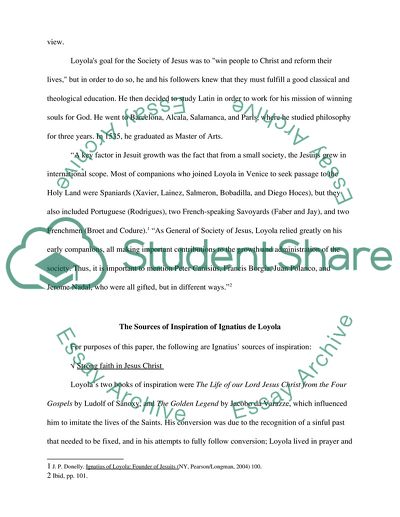Cite this document
(“The Inspiration of Ignatius of Loyola and Why the Society of Jesus is Essay”, n.d.)
Retrieved from https://studentshare.org/social-science/1547125-ignatious-of-loyola-inspiration
Retrieved from https://studentshare.org/social-science/1547125-ignatious-of-loyola-inspiration
(The Inspiration of Ignatius of Loyola and Why the Society of Jesus Is Essay)
https://studentshare.org/social-science/1547125-ignatious-of-loyola-inspiration.
https://studentshare.org/social-science/1547125-ignatious-of-loyola-inspiration.
“The Inspiration of Ignatius of Loyola and Why the Society of Jesus Is Essay”, n.d. https://studentshare.org/social-science/1547125-ignatious-of-loyola-inspiration.


